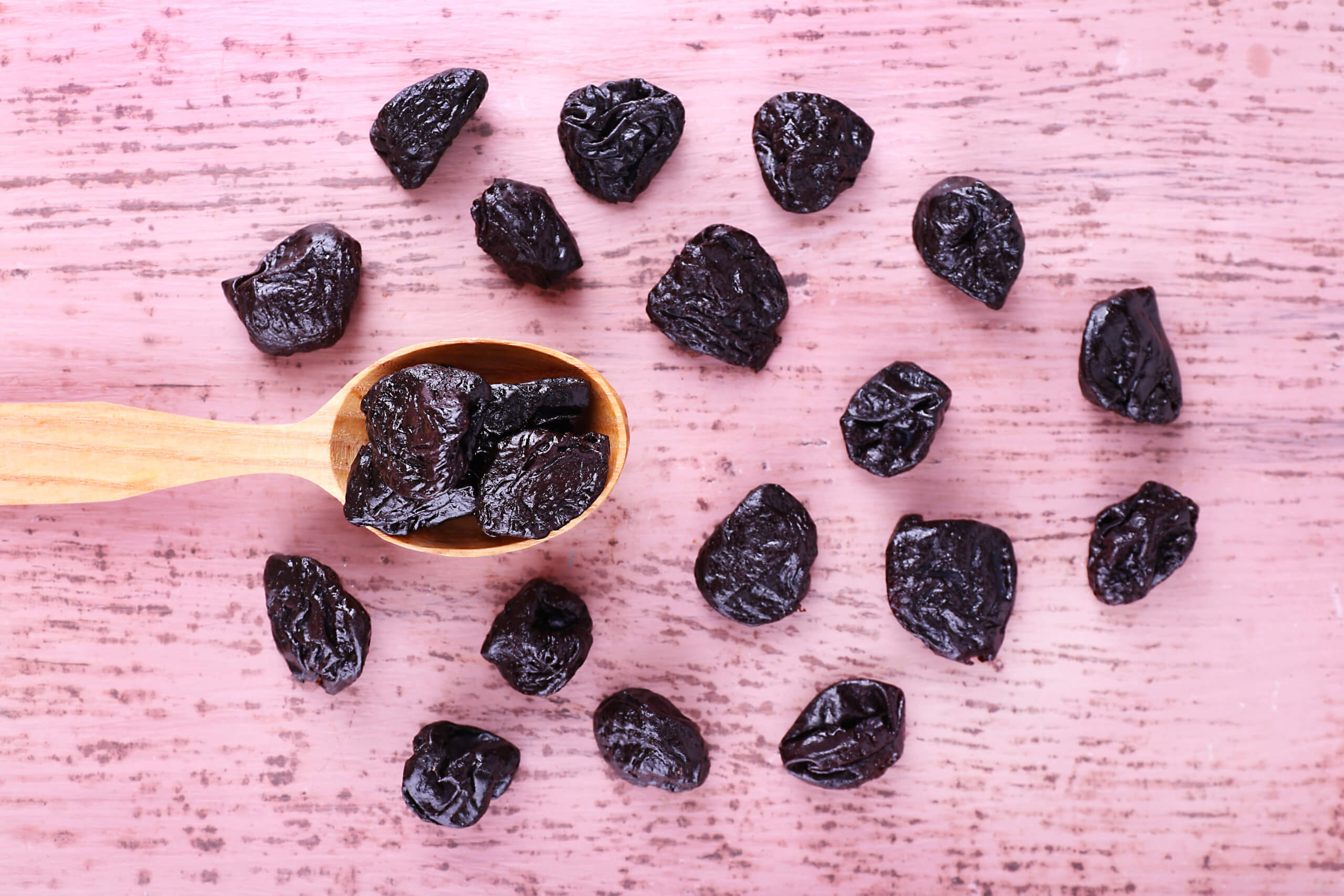A handful of prunes a day could protect older women against osteoporosis, according to new research. The dried plums contain chemicals that act as prebiotics — plant foods that fuel good bacteria, which in turn promote bone health.
In experiments, bone loss was reversed after the compounds were isolated and fed to female mice.
“Both the carbohydrate component and the polyphenols within the prunes altered the gut microbiota and were associated with positive effects on bone, namely restoring bone,” says lead author Professor Brenda Smith, PhD, a professor at the Indiana University School of Medicine, in a statement. “By definition, prebiotics are substrates that alter the composition or activity of the microbiota and confer benefits to the health of the individual.”
The findings have particular implications for women. Levels of the bone-boosting hormone estrogen drop after menopause. Prunes may help mimic it. They are rich in antioxidants which dampen inflammation and destroy harmful free radicals.
People with brittle bones are more prone to fractures. Osteoporosis affects 10 million American adults over 50. Research shows that 80% of the cases occur in women.
Previous research shows that prunes contain polyphenol extracts, plant compounds that act as antioxidants and reduce inflammation. They promote lower levels of oxidative stress and inflammation in a type of bone cell called osteoclasts. They also boost good bacteria – effects that were largely attributed to polyphenols. But other important nutrients, such as carbohydrates, had been overlooked.
In the study, funded in part by the California Prune Board, researchers fed polyphenol and carbohydrate compounds to two groups of estrogen-deficient mice with substantial bone loss for five or ten weeks. Two other sets were assigned whole prunes or a crude extract with polyphenols and carbohydrates. Another got no prunes components and served as the control. All diets were comparable in macronutrients.
All prune diets restored bone that had been previously lost. There was also dramatic improvements in the lab rodents’ gut bacteria, particularly those that strengthen bone. It suggests prunes contributes to better mineral absorption, immune system function and gut barrier integrity. These can affect hormones, metabolites and immune cells that play a role in bone health.
Interestingly, carbohydrates showed the ability to restore bone early while the effect of polyphenols on became evident and more important later.
“Even though we think they are both having prebiotic activity, those prebiotics are probably occurring by different mechanisms,” says Smith.
The findings, published in the journal Nutrients, make a strong case for consuming whole prunes. “You are getting some of the benefit from the carbohydrate in the short term, and the long term benefit from the polyphenols,” adds Smith.
The vitamins, minerals and plant compounds in prunes may also contribute to the bone and the gut benefits. It gets us closer to understanding the unique attributes of prunes while underscoring the importance of eating the fruit in its entirety.
Several recent or current studies are further exploring the benefits of the “superfood” on different health conditions.
Additional studies are set to will investigate the relationship between prune consumption and inflammation in postmenopausal women, osteoporosis in mice and colon cancer suppression in rats.
They are expected to build upon the existing body of evidence that points to prunes as a bone and gut supportive food.
Earlier this year another team found that over 50s who regularly snacked on prunes were less likely to develop osteoporosis. Containing under 100 calories per serving, they are a nutrient-dense fruit that packs a powerful punch. They also contain boron, potassium, copper and a cocktail of healthy plant compounds that are good for the bones.
They are hailed as a “superfood” for slowing down aging and combating iron deficiency, diabetes and heart disease.
Report by Mark Waghorn, South West News Service
